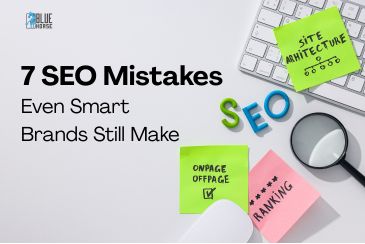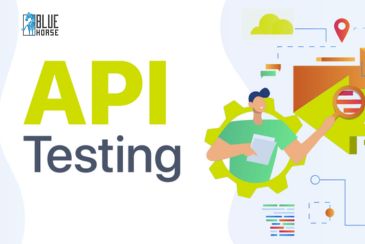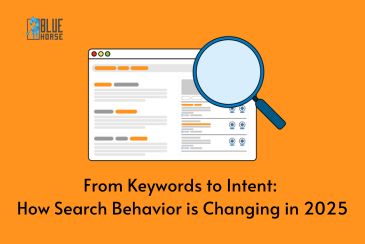Are Heading Tags Still Important for SEO in 2024
In the ever-evolving world of search engine optimization (SEO), many strategies and best practices have changed over the years. However, some elements have stood the test of time, and one of those is the use of heading tags. As we move into 2024, the question remains: Are heading tags still important for SEO? The short answer is yes, but their role has evolved. Let's dive deeper into the importance of heading tags, how they work, and how they fit into modern SEO strategies.
What Are Heading Tags?
Heading tags (H1, H2, H3, etc.) are HTML elements used to structure the content on a webpage. They create a hierarchy that helps both users and search engines understand the organization of content. Here’s how they work:
- H1: The main title or heading of a page, typically used once to represent the core topic.
- H2 - H6: Subheadings used to organize content into logical sections. H2 is usually a major section heading, while H3 - H6 offer further levels of sub-categorization.
For example, an H1 tag might represent the title of a blog post, while H2 tags might represent key subtopics, and H3 tags can break down those subtopics into more detailed sections.
Why Are Heading Tags Important?
Heading tags have traditionally been crucial for SEO for several reasons:
- Content Organization: They help to structure content, making it easier for users to skim and find the information they need.
- SEO Benefits: Search engines rely on headings to understand the context of a page’s content. In the early days of SEO, heading tags (especially H1) played a significant role in ranking pages based on specific keywords.
- User Experience: Studies show that 68% of users stay longer on pages with clear headings, as they make content more readable and engaging.
Why Were Heading Tags Crucial for SEO?
In the earlier days of SEO, heading tags, especially the H1 tag, were key for keyword optimization. By placing a keyword-rich H1 at the top of the page, websites could signal to search engines what the page was about. This helped improve their rankings for that particular keyword.
Some of the benefits heading tags brought included:
- Clear Content Hierarchy: They allowed search engines to better understand the layout and importance of content on a page.
- Keyword Placement: It was common to optimize headings, particularly H1, with primary keywords to boost search rankings.
Data even showed that websites with optimized heading tags ranked better. For example, product pages with well-structured H1 and H2 tags see a 15% increase in organic traffic, highlighting the continued importance of these tags for SEO.
Do Heading Tags Still Matter for SEO in 2024?
While heading tags are no longer the sole focus of search engine algorithms, they still play an important role in both SEO and user experience. Google’s algorithms have evolved to be smarter, focusing more on content quality, semantic search, and contextual relevance than on keyword-stuffed headings. Here’s why heading tags still matter in 2024:
- Improved User Experience: With a mobile-first indexing approach, heading tags are critical for optimizing content readability on smaller screens. Clear, well-structured headings make it easier for users to navigate through content, which leads to longer session durations and lower bounce rates.
- Indirect SEO Benefits: While heading tags aren’t a direct ranking factor anymore, they still contribute to better-organized content. This improves the chances of being featured in rich results or featured snippets, which can drive more traffic to your site.
- Search Engine Crawling: Google still uses heading tags to understand content structure and context. For example, if your H1 tag matches the query of a searcher, Google might use that information to present your content more effectively.
- Semantic Search: With Google’s increased focus on natural language processing (NLP), headings that provide clear, contextual relevance help search engines better understand the content without relying solely on keywords.
Stats Highlighting the Importance of Heading Tags in 2024:
- 15% increase in organic traffic for product pages with well-structured headings.
- 68% of users stay longer on pages with clear headings.
Google Trends on Heading Tags
A quick look at Google Trends reveals that while the focus on optimizing H1 tags for SEO has decreased, the overall interest in content structure has increased. This shows a shift in how marketers and developers view heading tags. Rather than optimizing for a single heading, there's a growing interest in creating a logical, well-structured flow for the entire content.
In addition:
- The search volume for H1 usage has remained steady, indicating its continued importance for content clarity.
- There’s increasing interest in content hierarchy and the role of heading tags in enhancing user experience, especially for mobile-first audiences.
Does Google Use H1 to Rank Pages?
Contrary to popular belief, Google doesn’t solely rely on H1 tags to rank pages. The search engine uses a variety of factors, such as context, content quality, and semantic relevance, when determining rankings. However, H1 tags still offer contextual relevance for crawlers and can help a page stand out, particularly in rich results or featured snippets.
While content quality is now more important than ever, well-structured heading tags can enhance the readability and user experience of a page, contributing indirectly to SEO.
Why Heading Tags Are Still Relevant in 2024:
- Contextual Relevance: Properly structured heading tags help search engines and users understand the flow of the content.
- Featured Snippets: Clear headings increase the chances of content being displayed in featured snippets or rich results.
- Mobile Optimization: With mobile-first indexing, headings help create an easy-to-navigate experience on mobile devices, improving both SEO and user experience.
Best Practices for Using Heading Tags in 2024
To make the most of heading tags in 2024, follow these best practices:
- Use H1 Sparingly: Ensure that your H1 is concise and relevant to the core topic of the page. Avoid using multiple H1 tags, as it can confuse search engines.
- Organize Subheadings Logically: Use H2s to break up main sections, and H3s (and beyond) for sub-sections. This creates a logical flow and improves readability.
- Avoid Keyword Stuffing: Focus on writing clear, relevant headings that provide context for the content. Google’s algorithms are smart enough to understand synonyms and related terms, so there’s no need to overuse keywords in headings.
- Think About Mobile: With mobile-first indexing, your headings should be short and clear enough to display properly on smaller screens.
- Focus on Content Quality: Headings are important, but they won’t save low-quality content. Make sure the content under each heading is well-written, informative, and valuable to your audience.
Conclusion
In 2024, heading tags are still a critical component of SEO, but their role has evolved. While they are no longer a primary factor for ranking on Google, they contribute to better content structure, user experience, and contextual relevance. For optimal results, focus on creating clear, structured headings that enhance readability and organize your content in a way that makes sense both for users and search engines.
Heading tags may not be the SEO powerhouse they once were, but they are far from obsolete. By using them effectively, you can improve the overall performance of your website and continue to see positive results in search engine rankings.





















Comments